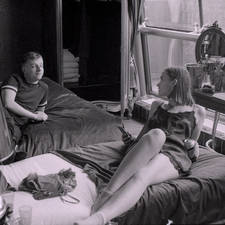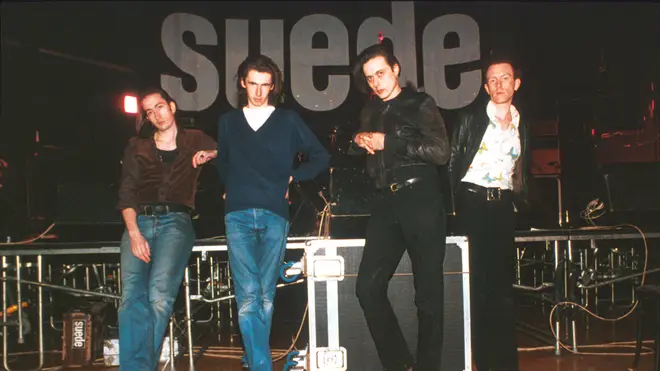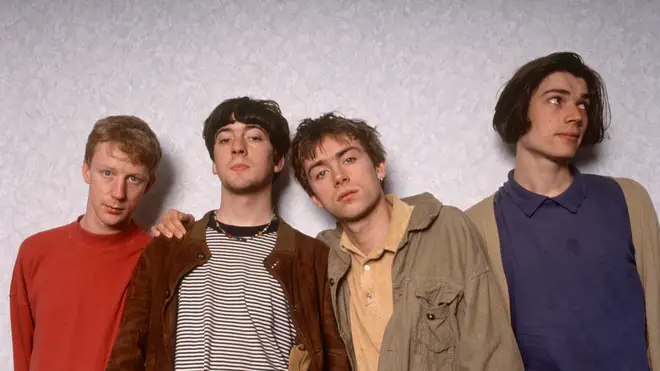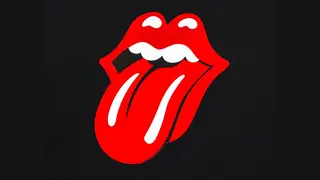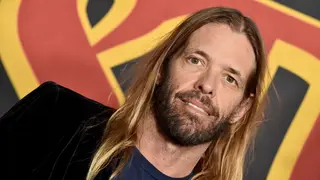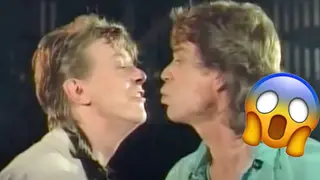What was the very first Britpop song?
11 May 2024, 13:00 | Updated: 18 March 2025, 18:15
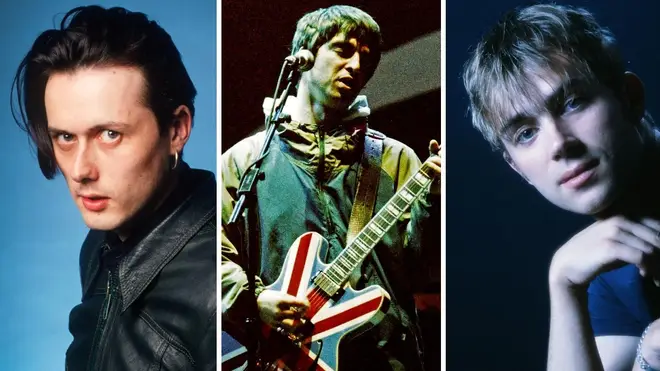
Britpop is now three decades old... but did it all start with Blur and Oasis? Radio X looks at the evidence.
Listen to this article
Britpop spawned some of this country's best-known and most successful artists and put music at the forefront of the British lifestyle. But what was the spark that led to the genre's domination of the charts in the mid 90s?
The story goes like this: in the early 1990s, British bands were so bored and alienated by the sudden surge in popularity of American acts like Nirvana and Pearl Jam that they kicked against grunge and began to carve out a niche of their own.
The movement paid tribute to the classic rock acts of previous decades - The Kinks, The Small Faces, T-Rex, The Beatles - while adding a hefty helping of indie swagger to the mix.
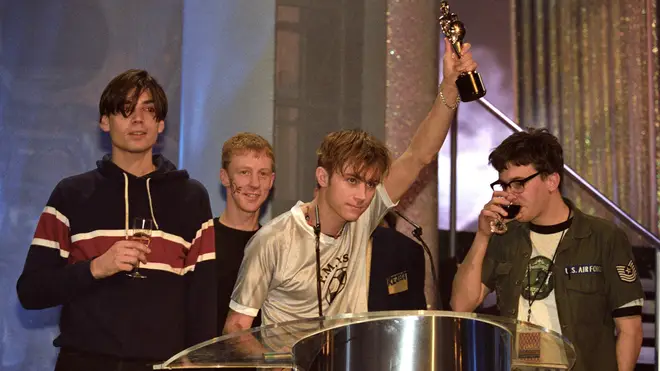
But Britpop didn't happen overnight, it was a gradual process, as one set of bands gave way to another. Can we, three decades on, pinpoint the exact moment where the genre blossomed into life?
Sadly for Oasis fans, the Gallaghers were relatively late to the scene. When they played their first live show in August 1991, they were doing covers of house tunes and didn't meet their mentor Alan McGee until May 1993, the same month that Blur issued their influential album Modern Life Is Rubbish. So which artist took the first step into the world of Britpop?
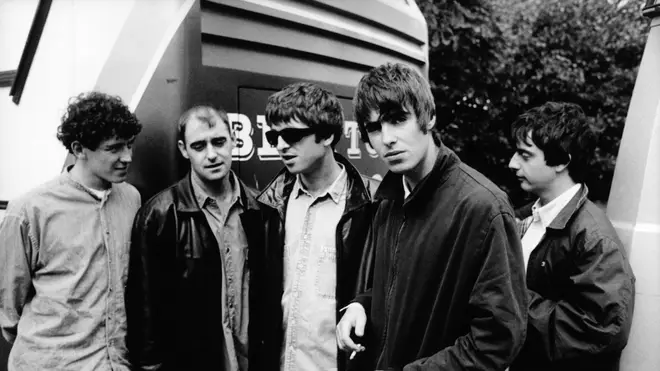
-
Suede - The Drowners (release date: 11th May 1992)

Suede - The Drowners (Official Video)
Suede's debut can lay claim to being the first Britpop single - certainly in terms of sound, presentation and its general intention of clearing out the old guard. With the spectacular combination of singer Brett Anderson and guitarist Bernard Butler, The Drowners is confident and sexy, paying tribute to artists of old like David Bowie and Marc Bolan.
Did someone say Britpop? Suede in Cambridge, March 1992: Simon Gilbert, Bernard Butler, Brett Anderson and Mat Osman. Picture: Ian Dickson/Redferns/Getty Images It sounded like nothing else in the charts and the cover artwork, which features a woman made up tin body paint to look like a male gangster, brilliantly summed up the band's attitude.
When the band appeared on Top Of The Pops in September 1992 with their second single Metal Mickey, unsuspecting viewers were confronted with the fabulously androgynous, open-shirtedAnderson, careering across the stage. It seems that Britpop as we know it began here. But other artists had planted the seeds...
-
Blur - Popscene (release date: 30th March 1992)

Blur - Popscene (Official Music Video)
In his book The Last Party: Britpop, Blair And The Demise Of English Rock, writer John Harris claims that the movement began in the Spring of 1992 with Suede's first release (see above) and this standalone single by Blur. The band had enjoyed success the previous year with hits like There's No Other Way and Bang, which tapped into the "baggy" beat that was clogging up indie club dancefloors at the time.
This approach, while commercially successful, didn't sit easily with the group and they wanted to try and forge some identity of their own. Popscene, released on 30th March 1992, was the next step. Up tempo, aggressive and full of angry riffs, the track was a departure from the baggy shuffle of their debut album Leisure.
The "baggy" Blur in June 1991: Dave Rowntree, Graham Coxon, Damon Albarn and Alex James,. Picture: Brian Rasic/Getty Images But listening back to Popscene, while some of the elements of Blur's future direction are there - the brass-band style keyboards, the snotty attitude - it's a very heavy, guitar-led record. And check out the video, which is an embryonic version of the classic clip for Song 2. Graham Coxon's love for American guitar bands would take Blur through the post-Britpop era.
At the time Popscene was released, Blur were part of the Rollercoaster tour, a trip around the UK on a bill that also featured My Bloody Valentine, The Jesus And Mary Chain and US grunge heroes Dinosaur Jr, so they were very much lumped in with the waning "shoegaze" trend. A week later, they would head to America for a string of shows that would make them feel even more out of place, leading Damon Albarn to start exploring more English themes in his lyrics. With the arrival of the album Modern Life Is Rubbish a year later, complete with a press shot that bore the slogan "British Image 1", the template for Britpop was set.
-
Manic Street Preachers - You Love Us (release date: 7th May 1991)

Manic Street Preachers - You Love Us (Heavenly Version)
Are the Manics Britpop? Their outsider status always makes them stand apart from the genre, but Everything Must Go was a key album of the Bripop era. But take a listen to their second single to the indie label Heavenly, back in May 1991. Is this where it started?
The band had the looks: Richey Edwards and Nicky Wire toyed with gender stereotypes in their clothes and make-up, while the song itself is a self-aggrandising retro tribute to The Clash, the New York Dolls and - in the original Heavenly version only - Iggy Pop, courtesy of an ending that deliberately rips off the classic riff from Lust For Life.
But the Manics weren't really part of the Camden scene (mind you, neither were Oasis) and therefore this feels like just an early signpost towards Britpop. Certain future bands were taking note.
-
The Real People - Window Pane (released 19th November 1990)

The Real People - Window Pane
Who? Well, exactly. This Liverpool band have been name-checked by Noel Gallagher for their help in the early days of the Oasis story; Gallagher met bassist Tony Griffiths who helped the Manchester lads make their famous demo tape. Griffiths and his brother Chris helped Oasis create arrange their early material, which was a key part of the success of the debut album Definitely Maybe.
Window Pane was issued as a teaser for the band's debut album for CBS Records and while it still has that ever-present baggy shuffle, there's a nod to classic 60s songwriting that has a direct link through to Oasis, Cast, Ocean Colour Scene and a dozen others. However, The Real People probably lean a little too far to the Oasis arm of Britpop - there aren't many Bowie influences here.
-
The La's - There She Goes (release date: 31st October 1988)

The La's - There She Goes
Is this classic single the source? Like The Real People, The La's were Scousers, and this simple acoustic song sounded incredibly out of place in the indie landscape of 1988, which saw many bands trying to fill the void that The Smiths had left. There was something perhaps too naive and basic about the song to fit the cynical 80s, which is why it struggled to Number 59 in the UK charts on its initial release. When the track was reissued in line with the long-awaited arrival of The La's self-titled debut album, it fared a lot better, cracking the Top 20.
Frontman Lee Mavers struggled to deliver a follow-up album and The La's floundered. His comrade John Power left the band at the end of 1991 and re-emerged with Cast, who found an audience ready and waiting for them.
